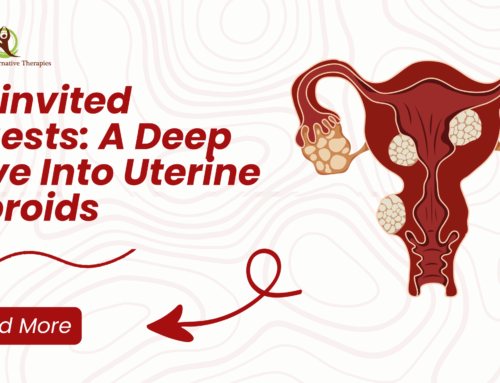Heart Health and Ayurveda
February is Heart Health Month
Ayurveda stands out as a beacon of holistic wellness, offering natural and time-tested solutions for various health issues. One concern affecting millions worldwide is heart disease. Ayurveda, an ancient holistic healing system developed over 3,000 years ago in India, offers a comprehensive approach to health that is increasingly relevant in our modern lifestyle, including in countries like Canada. The Ayurvedic philosophy of heart health extends beyond the physical organ, encompassing emotional and spiritual well-being, and provides guidance on sleep, stress management, nutrition, and physical activity. Integrating these Ayurvedic principles into the Canadian lifestyle could offer a pathway to enhanced well-being and heart health.
The heart, an intricate organ at the core of our existence, is often called the seat of our emotions. It’s no wonder that keeping this vital organ healthy is of paramount importance. While modern medicine provides valuable tools for heart care, ancient wisdom offers complementary approaches that have stood the test of time.1
Understanding Ayurveda Heart Care
In the world of Ayurveda, the heart is more than a physical organ pumping blood; it is recognized as the very seat of consciousness. This perspective on the heart’s role forms the foundation of Ayurveda treatment for heart disease and heart health.1
Ayurveda follows a holistic discipline to reduce arterial blockages thereby improving cardiovascular health without the risk of any harmful effects.1
The ancient tradition of Ayurveda holds the solution to heart disease through detoxifying the doshas from the body through specialized diet plans, herbal preparations, and therapeutic practices.1
Heart as the Seat of Consciousness
Ayurveda teaches us that the heart houses the essence of life, emphasizing a connection beyond the anatomical function of the heart. It’s considered the hub of emotions, thoughts, and spirituality, deeply linked to our mental and emotional states. Ayurveda views the heart as the Centre of love, compassion, and emotional balance. A healthy heart not only ensures physical well-being but also nurtures emotional harmony.
Doshas and Their Influence on Heart Health
Central to Ayurveda philosophy are the doshas—Vata, Pitta, and Kapha—fundamental energies that govern all biological and psychological functions. These doshas play a significant role in heart health.
Vata Dosha: When aggravated, Vata dosha can lead to irregular heartbeats and palpitations. It disrupts the natural rhythm of the heart, causing instability.
Pitta Dosha: Excess Pitta dosha can cause inflammation in the heart, raising the risk of conditions like hypertension and other inflammatory heart diseases.
Kapha Dosha: An imbalance in Kapha dosha can result in the accumulation of plaque in the arteries, leading to atherosclerosis and an increased risk of heart disease.
Ayurveda treatment for heart disease involves identifying and addressing these dosha imbalances. By assessing an individual’s unique constitution and the prevailing dosha imbalances, Ayurveda practitioners can tailor treatment plans that not only address the physical aspects of heart health but also restore emotional and mental equilibrium.
Sleep According to Ayurveda
Ayurveda emphasizes the importance of sleep for maintaining and restoring health. It suggests a natural alignment with the circadian rhythms — going to bed early (preferably by 10 p.m.) and rising with the sun. This practice, known as “Dinacharya,” helps regulate the body’s internal clock, supporting heart health by ensuring restorative sleep, reducing stress, and stabilizing blood pressure.
Stress Management and Emotional Well-Being
Stress is a significant risk factor for heart disease. Ayurveda addresses stress through practices like meditation, yoga, and “Pranayama” (breath control techniques). These practices help calm the mind, reduce stress hormones, and improve heart rate variability, making them a perfect addition to the Canadian lifestyle, where stress is a common issue due to a fast-paced way of life.
Nutritional Guidelines
Ayurveda places a strong emphasis on nutrition, advocating for a balanced diet tailored to one’s “Dosha” (body type) — Vata, Pitta, or Kapha. Foods that are natural, fresh, and seasonally appropriate are favored. For heart health, Ayurveda recommends foods rich in omega-3 fatty acids, antioxidants, and fiber, while minimizing processed and high-sugar foods. Incorporating these dietary guidelines can complement the Canadian dietary recommendations, focusing on plant-based foods and reducing consumption of processed foods and red meats. For example, those with excess Pitta dosha might benefit from cooling foods like cucumber and mint.
Physical Activity
Regular physical activity is another pillar of heart health in Ayurveda. Instead of promoting intense and exhaustive workouts, Ayurveda suggests moderate, consistent, and enjoyable forms of exercise like walking, cycling, swimming, and yoga. These activities align with Canadian physical activity guidelines and are particularly beneficial for heart health, improving circulation, and reducing the risk of heart disease. The choice of exercises and yoga poses can be customized based on an individual’s dosha.
Avoidance of Toxic Substances
The avoidance of toxic substances, such as excessive alcohol and tobacco, is crucial in Ayurveda heart care. These substances can disrupt the balance of doshas and negatively impact heart health.
Ayurvedic Tips for a Healthy Heart
In ancient times, senior people may have become victims of heart problems. Presently, people of all ages get trapped with sudden heart failure because of a fast-food culture and the rise in mental stress. Through proper awareness, people can reverse their thoughts back to the ancient science of Ayurveda to keep their hearts healthy for a long period. The natural remedies of Ayurveda balance the normal functions of the heart through good dietary choices and an active lifestyle. Here are the top Ayurveda tips to follow to reduce the risk of cardiovascular problems.2
- Control blood sugar levels.
- Keep cholesterol and triglyceride levels in check.
- Manage your Body Mass Index (BMI).
- Eating a healthy nutritious diet
- Exercising regularly.
- Avoid alcohol intake.
- Avoid smoking and drug abuse.
- Practice meditation to defend against heart ailments.
- Get adequate sleep.
Ayurveda and Herbs
Ayurveda recommends incorporating herbs into your daily diet to nourish, protect and strengthen the heart muscles. Ayurveda herbal additions help to cleanse arteries and improve blood circulation throughout the body. Garlic1 can do wonders in lowering blood pressure and cholesterol levels and thereby prevents plaque buildup within the arteries. Turmeric4 has antioxidant and anti-inflammatory properties, and its active ingredient curcumin lowers bad cholesterol and reverses coronary blockages3. Arjuna is a natural solution for cardiovascular problems and is efficient to treat anginal pain, hypertension, and congestive heart failure4. Guggulu, Amalaki, Lasuna, Pushkarmoola, and Jatamasi are considered effective cardio-booster herbs for healthy cardiac function. 4
Herbs for Ayurveda Heart Care2,3,4
1) Arjuna: Arjuna is renowned for its cardiovascular benefits, strengthening heart muscles and regulating blood pressure.
2) Brahmi: Brahmi enhances cognitive function and alleviates stress, benefiting overall heart health.7
3) Ashwagandha: Ashwagandha manages stress, reduces inflammation, and improves heart function.6
4) Guggul: Guggul reduces cholesterol levels and promotes heart health.3
5) Garlic: Garlic, known for its cholesterol-lowering properties, supports heart health8,9
6) Tinospora cordifolia commonly known as “Amrita” or “Guduchi” is an important drug of Indian systems of medicine (ISM) and used in medicines since times immemorial. The drug is well known Indian bitter and prescribed in fevers, diabetes, dyspepsia, jaundice, urinary problems, skin diseases and chronic diarrhoea and dysentery. It has been also indicated useful in the treatment of heart diseases, leprosy, helminthiasis and rheumatoid arthritis. Guduchi has high therapeutic potential by its anti-toxic, anti-inflammatory, anti-pyretic and anti-oxidant properties. There is also no evidence that Guduchi has any toxic content or side effects, which proves its safety aspect as well.5
Food for the heart
Opting for a heart-friendly diet that lowers your risk of developing heart disease and other associated ailments. Hence, eating right for your heart prevents you from gaining weight, and helps to reduce the risk of developing diabetes and blood pressure. Here are the top diet recommendations to follow for a healthy heart.2
- Include Leafy green vegetables like spinach, kale, and collard greens in your diet.
- Consume whole grains such as whole wheat, brown rice, oats, and rye.
- Include Strawberries, blueberries, blackberries, and raspberries to control blood pressure and blood clotting.
- Fatty fish like salmon, mackerel, sardines, and tuna contribute to heart health benefits.
- Dark chocolate acts as an antioxidant to boost heart health.
- Cut down sugar, salt, and fat in the diet.
- Avoid Processed Meats, canned food, and red meat.
Even though we take our best efforts to care for our hearts, life-threatening heart conditions are beyond our control. Hence, it is very important to take extra care to nourish our hearts through Ayurveda as a prevention measure. Choose a healthy lifestyle with Ayurveda recommended diet to reduce the risk for serious heart problems.
Integrating Ayurveda into the Canadian Lifestyle
Adopting Ayurvedic practices into the Canadian lifestyle can offer a holistic approach to heart health, addressing not just the physical, but also the emotional and spiritual aspects of well-being. By focusing on natural and preventive measures, such as proper sleep, stress reduction, balanced nutrition, and regular physical activity, individuals can enhance their heart health and overall quality of life.
In conclusion, the Ayurvedic philosophy of heart health offers valuable insights that are highly applicable to the Canadian lifestyle. It encourages a balanced approach to living that nurtures the heart in every sense — physically, emotionally, and spiritually. As Canadians become increasingly interested in holistic and preventive health measures, Ayurveda’s time-tested wisdom presents a complementary path to conventional medicine, promoting heart health and overall well-being.
How We Can Help You? Book an appointment with our experienced practitioners at our Mississauga clinic. Through our personalized, whole-body approach we will design a customized treatment plan getting to the root of your health issues. COAT offers a suite of personalized complementary health care services that span a variety of effective modalities. Our approach is as follows:
- We need to develop a health care strategy for your body: A COAT therapist will conduct a detailed case history to understand your specific health journey and associated challenges. The more open and transparent you are the better probability we have of developing an effective strategy.
- We need to research a solution for you: A COAT therapist will research and evaluate different complementary health care modalities to define a clinical strategy that is personalized for your body chemistry and personality. By navigating the published literature so that you don’t have to, a COAT therapist will design a holistic treatment plan.
- You are never alone, we always want to talk to you: Our customer service team will reach out to you on a periodic basis to understand your progress and provide you with encouragement, support and a mechanism to provide feedback. We will always be there to take your call or answer your emails.
References
- https://adyantayurveda.com/ayurveda-care-for-heart-health/
- https://www.ayurvedacollege.net/blogs/keep-your-heart-healthy-with-these-ayurveda-tips
- Singh R, Singh RP, Batiwala PG, Upadhyay BN, Tripathi SN. Puskara-Guggulu an antianginal and hypolipiemic agent in coronary heart disease (CHD) J Res Ayurveda Siddha. 1991;12:1–18.
- Credential evidences of Ayurvedic cardio-vascular herbs, K. Nishteswar, 2014 Apr-Jun; 35(2): 111–112.
- Raju Ninama, Archana Verma, Meenu Mishra, Anil Nagle, R. K. Pati, & Rajesh Meshram. (2022). An exploration of physiological, medicinal and safety aspects of Guduchi (Tinospora cordifolia): A complete Ayurvedic and modern review. Journal of Ayurveda and Integrated Medical Sciences, 7(4), 62 – 74. Retrieved from https://jaims.in/jaims/article/view/1839
- Sandhu JS, Shah B, Shenoy S, Chauhan S, Lavekar GS, Padhi MM. Effects of Withania somnifera (Ashwagandha) and Terminalia arjuna (Arjuna) on physical performance and cardiorespiratory endurance in healthy young adults. Int J Ayurveda Res. 2010 Jul;1(3):144-9.
- Firoj A. Tamboli1*, Vinod D. Rangari2, Shreyash D. Tarlekar3, Rajendra D. Jadhav4, Kamal M. Alaskar4, Vaibhava V. Desai4, Rajesh U. Kanthe4.Brahmi (Bacopa monnieri): an ayurvedic herb in the management of various diseases. Journal of Postharvest Technology 2022, 10(4): 59-74 jpht.in
- SHENENI VD, ENESI KO. (2024) Assessment of the impact of Garlic on heart-related diseases. Adv Clin Med Res. 5(1):1-27.
- VK Joshi, A Joshi. Garlic in Traditional Indian Medicine (Ayurveda) for Health and Healing Herbs and Spices: New Processing Technologies 2021: Chapter 11




